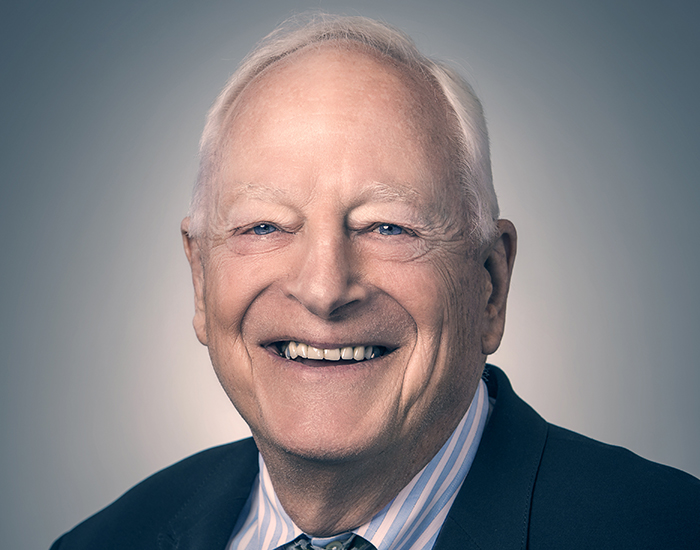This story was first published in the 2019-20 Annual Report.
KGI appointed former Kaiser CEO Dr. David Lawrence as Dean of the KGI School of Community Medicine in March 2020. In his first few months, Lawrence has met with faculty and staff to develop synergies between the KGI School of Community Medicine and KGI’s existing certificate and degree programs.
Through those countless conversations, Lawrence has also gained a deeper understanding of the faculty expertise and advanced educational technologies at KGI and The Claremont Colleges. Drawing on KGI’s strengths and developing partnerships with health professionals, the KGI School of Community Medicine will prepare a different type of physician.
With new scientific advances, powerful technology-driven tools, and advanced analytics, healthcare professionals now have an unprecedented ability to provide “precision health”—the solutions that can help people stay healthy, prevent illness and injury, and detect those conditions before symptoms occur.
But this is not the work of physicians and health systems who take care of patients. They are already hard-pressed to provide safe and effective medical care for the worried, sick, and injured. A different physician is required to bring the new tools of precision health to the individuals, families, and communities who can benefit: a professional from those communities trained in community medicine.
The community medicine specialist physician is prepared to:
- Work in teams to deliver the science of precision health: bio-computation related to genomics and proteomics, massive data analytics, artificial intelligence, machine learning, and behavioral and motivational science.
- Use the tools of telecommunications and advanced engineering to bring health information and diagnostic and therapeutic support directly to individuals and families.
- Work in teams with and from the communities to identify the local health challenges, design and implement solutions, and assess their impact.
- Work with patients to bridge the increasingly complex world of clinical diagnosis and treatment decision-making and the unique context and culture from which those patients come.
- Provide leadership in the design and management of the systems that bring these solutions to those who need them.
One medical school cannot solve the challenges we face. But one school can prepare skilled physician leaders to improve health in the communities where they choose to work. One school can show how to select and prepare this new kind of physician.
“We will prepare outstanding, rigorously trained community medicine specialist physicians with the backgrounds, maturity, intelligence, skills, ethics, and compassion to confront the challenges that lie ahead.”
“We will do this in partnership with health professionals, community representatives, and the families and individuals our graduates will serve,” Lawrence says.
While serving as the CEO and Chairman of the Kaiser Foundation Health Plan and Hospitals from 1991 to 2002, Lawrence focused the nation’s attention on the issue of patient safety and the need for reform in healthcare delivery systems.
Now, in his current role at KGI, he has the opportunity to reform medical education and prepare physician leaders for satisfying careers in community medicine in the underserved and underrepresented communities where they work.
